Wisdom tooth removal near me
Wisdom tooth removal near me is a surgical treatment that removes one or more wisdom teeth, which are the four permanent adult teeth positioned at the top and bottom rear corners of your mouth.
If a wisdom tooth does not have enough capacity to develop (impacted wisdom tooth), causing discomfort, infection, or other dental issues, it will most likely need to be extracted. A dentist or an oral surgeon can do wisdom tooth removal near me.
Even if impacted teeth aren't creating problems right now, some dentists and oral surgeons recommend wisdom tooth removal near me to avoid future troubles.
The last permanent teeth to erupt (appear) in the mouth are wisdom teeth, sometimes known as third molars. These teeth usually appear between the ages of 17 and 25.Some people do not get wisdom teeth. Others have wisdom teeth that emerge naturally, exactly like their other molars, and create no complications.
Many people have impacted wisdom teeth, which are teeth that do not have enough space to erupt or grow appropriately. Wisdom teeth that are impacted may emerge only partially or not at all.
An impacted wisdom tooth can cause:
- Grow at an angle in the direction of the following tooth (second molar).
- Grow at a 45-degree angle towards the rear of the mouth.
- Wisdom teeth grow at a right angle to the other teeth, as if they are "lying down" within the jawbone.
- They develop straight up and down, like regular teeth, but remain locked within the jawbone.
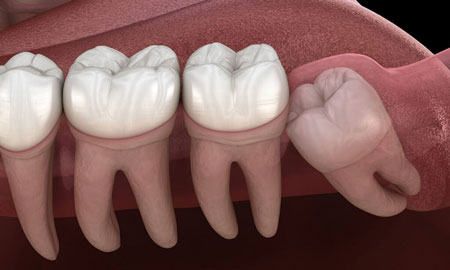
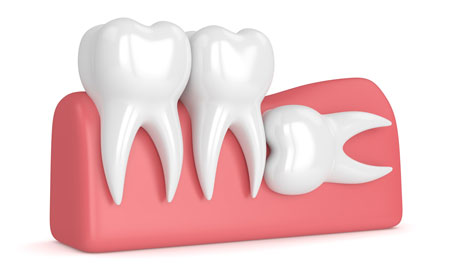
Is there a problem with impacted wisdom teeth?
Your impacted wisdom teeth will almost certainly need to be extracted if they cause difficulties such as:
- Pain
- Food and debris are trapped behind the wisdom teeth.
- Infection or periodontal disease (gum disease).
- Tooth rot in a wisdom tooth that has partially erupted.
- Damage to a neighbouring tooth or bone.
- A fluid-filled sac (cyst) forms around the wisdom teeth.
- Complications with various teeth-straightening orthodontic procedures.
Keeping potential tooth issues at bay
Dental experts disagree on the benefits of wisdom tooth removal near me that aren't creating difficulties (asymptomatic).
Future complications with wisdom tooth removal near me are difficult to anticipate. However, here is the reasoning behind preemptive extraction:
- Even if you don't have any symptoms, your wisdom teeth might still be infected.
- When there isn't enough room for the tooth to emerge, it might be difficult to reach it and properly clean it.
- In younger individuals, serious issues with wisdom teeth are less common.
- Surgery can be challenging for older people, and problems following surgery might occur.
Risks
Wisdom tooth removal near me is not associated with long-term problems. However, the wisdom tooth removal near me occasionally necessitates creating an incision in the gum tissue and extracting bone. Complications are uncommon but may include:
- Painful dry socket or bone exposure when the post-surgical blood clot is lost from the surgical incision (socket).
- Bacterial infection in the socket or food particles stuck.
- Damage to teeth, nerves, jawbone, or sinuses adjacent.
How do you prepare?
An oral surgeon will examine the condition of your wisdom teeth and take dental X-rays to establish their precise placement during a consultation. Tell your surgeon about any drugs, vitamins, or supplements you're presently using.
During this session, your surgeon will also discuss sedation dentistry options with you. They may propose local anaesthesia, nitrous oxide (laughing gas), IV (intravenous or via your vein) sedation, or general anaesthesia, depending on your requirements and choices.
If you opt for IV sedation or general anaesthesia, your surgeon will provide you with specific advice on how to prepare for your visit. This might involve fasting after midnight the night before surgery and discontinuing certain drugs a few days beforehand. (Do not discontinue medicine before discussing it with your surgeon.)
Questions to Ponder
You may wish to ask your dentist or oral surgeon the following questions:
- How many wisdom teeth must be extracted?
- What kind of anaesthesia will I have?
- How difficult do you anticipate the operation to be?
- How long will the treatment take?
- Have the impacted wisdom teeth caused any harm to the neighbouring teeth?
- Is there a chance I'll have nerve damage?
- What additional dental treatments could I require in the future?
- How long does it take to fully recover and resume normal activities?
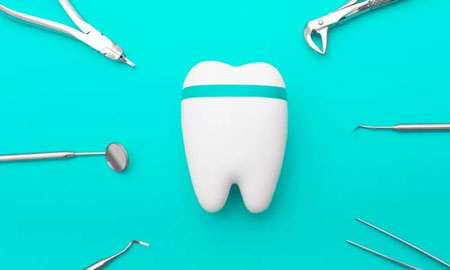
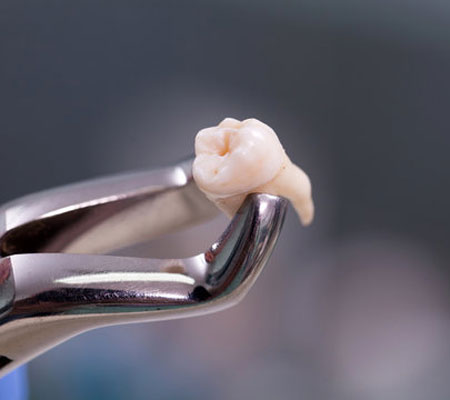
Getting ready for surgery
An outpatient wisdom tooth removal near me is often performed. This implies you will return home the same day.
The hospital or dental clinic personnel will give you instructions on what to do before and on the day of your wisdom tooth removal near me. Pose the following questions:
- Is it necessary for me to arrange for someone to transport me home after the procedure?
- When should I go to the dental clinic or hospital?
- Do I need to abstain from eating, drinking, or both (fast)? If yes, when should I start?
- Can I take my prescribed drugs before the procedure? If so, when should I start taking it before the surgery?
- Should I abstain from using any nonprescription medications?
What to anticipate during the process?
Depending on the predicted difficulty of the wisdom tooth removal near me and your degree of comfort, your dentist or oral surgeon may employ one of three forms of anaesthesia. Among the options are:
Anaesthesia is administered locally. Local anaesthesia is administered by your dentist or oral surgeon by one or more injections at the site of each extraction. Before providing the injection, your dentist or surgeon will most likely numb your gums. During the wisdom tooth removal near me, you are awake. You should not feel any discomfort despite the pressure and movement.
Anaesthesia and sedation. Sedation anaesthesia is administered by your dentist or oral surgeon via an intravenous (IV) line in your arm. During the wisdom tooth removal near me, you will be unconscious due to sedation and anaesthesia.
You have no pain and merely a foggy memory of the procedure. Local anaesthesia will also be used to numb your gums.
Anaesthesia in general. In some cases, you may be administered general anaesthesia. You may be given medicine through your nose, have an IV line inserted into your arm, or both. Then you go unconscious. Your medicines, respiration, temperature, fluids, and blood pressure are all continuously monitored by your surgical team. You will feel no discomfort and have no recollection of the process. Local anaesthesia is also used to alleviate postoperative pain.
Your dentist or oral surgeon will accomplish the following during wisdom tooth removal near me:
- To reveal the tooth and bone, an incision is made in the gum tissue.
- Removes bone that is impeding access to the dental root.
- If removing the tooth in portions is simpler, divide it into sections.
- The tooth is extracted.
- Removes any material from the tooth or bone at the location of the extracted tooth.
- Close the wound with stitches to facilitate healing; however, this isn't always necessary.
- Place gauze over the extraction site to reduce bleeding and aid in the formation of a blood clot.
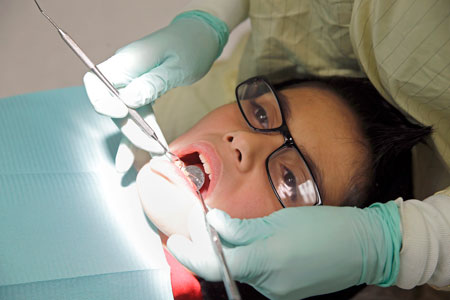
If you have sedation or general anaesthesia, you will be brought to a recovery room following the treatment. If you receive local anaesthesia, you will most likely spend your recovery period in the dentist chair.
As you heal from your surgery, follow your dentist's advice on:
Rest as much as possible. You should rest at home for at least three to five days. If you work in a physically demanding profession, you may have to wait a little longer before returning to work.
Pain control. You may be able to control your discomfort with over-the-counter pain relievers such as acetaminophen (Tylenol, for example) or with a prescription pain medication from your dentist or oral surgeon. Prescription pain relievers may be especially beneficial if bone is removed during the treatment. A cold pack against your jaw may also help ease discomfort.
There is swelling and bruising. As advised by your dentist or surgeon, use an ice pack. Any swelling in your cheeks should go away in two or three days. Bruising may take many days to heal. Activity. Plan to rest for the remainder of the day following your treatment. Return to usual activities the next day, but avoid intense exercise for at least a week to avoid losing the blood clot from the socket.
Beverages. Drink plenty of water following surgery. In the first 24 hours, avoid alcoholic, caffeinated, carbonated, or hot beverages. Avoid drinking with a straw for at least a week since the sucking movement may dislodge the blood clot from the socket.
Food. For the first 24 hours, eat only soft foods like yoghurt or applesauce. When you can handle semisoft meals, begin eating them. Avoid foods that are hard, chewy, hot, or spicy because they may become lodged in the socket or aggravate the wound.
You should brush your teeth. For the first 24 hours following surgery, do not brush your teeth, rinse your mouth, spit, or use mouthwash. After the first 24 hours, you should be able to continue cleaning your teeth. Brush lightly near the surgical area, and rinse your mouth with warm salt water every two hours and after meals for a week.
Tobacco consumption. If you smoke, refrain from doing so for at least 72 hours following wisdom tooth removal near me, and preferably for longer. Stop chewing tobacco for at least a week. Tobacco use following oral surgery might cause recovery to be delayed and raise the risk of problems.
Maintain the cleanliness of extraction sites. Soak the surgical regions gently in alcohol-free antibacterial mouthwash. Swishing is not permitted. Swishing can dislodge blood clots and induce dry sockets, a painful disease in which the bone at the extraction site is exposed. Instead, tilt your head to either side and allow the mouthwash to sink into the affected regions.
Stitches. You might have sutures that dissolve in a few weeks or none at all. If you need your sutures removed, make an appointment to have them removed.
Take all drugs exactly as directed. Your surgeon will administer pain relievers and antibiotics to keep you comfortable and limit your risk of infection. Stop taking these drugs only if your surgeon advises so.
What are the advantages of having wisdom teeth extracted?
Wisdom tooth extraction can lower your chance of developing future oral health issues such as:
- The illness of the gums.
- The deterioration of teeth.
- Neighbouring teeth have been damaged.
- Bone deterioration.
- Jaw injury.
If you've already experienced discomfort as a result of your wisdom teeth, extraction may frequently relieve it almost immediately and get you back on track to better dental health.
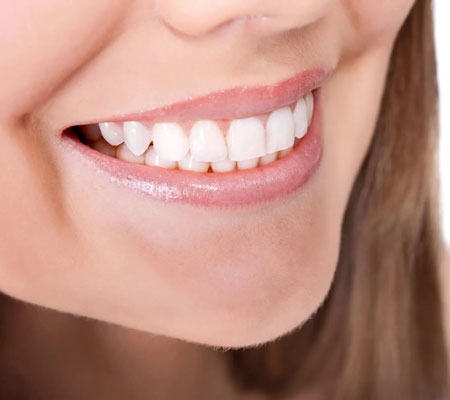
When to consult a dentist or surgeon?
If you see any of the following signs or symptoms, which might signal an infection, nerve damage, or other significant problem, contact your dentist or oral surgeon right away:
- Swallowing or breathing difficulties
- Excessive bruising
- Fever
- Pain medicine does not help severe pain
- Swelling that increases over the next two or three days
- A foul taste in your mouth that is not erased by washing with saltwater
- Pus in the socket or leaking from the socket
- Consistent numbness or lack of sensation
- Nasal discharge with blood or pus
You are unlikely to require a follow-up session following wisdom tooth removal near me if:
- There was no need for sutures to be removed, and there were no complications throughout the treatment.
- You don't have any long-term issues, such as discomfort, swelling, numbness, or bleeding—consequences that might suggest infection, nerve damage, or other issues.
If difficulties arise, consult your dentist or oral surgeon about treatment options.
For many teenagers and young adults, having their wisdom tooth removal near me is a rite of passage. Dentists frequently prescribe it as a preventive measure to avoid future oral health concerns such as decay and gum disease. While wisdom tooth removal near me is definitely not at the top of your bucket list, it may save you a lot of time, concern, and money in the long run, especially if your wisdom teeth are causing problems with your dental health. Consult your dentist if you're unsure whether you need wisdom tooth removal near me. They can assist you in making the best option for you.